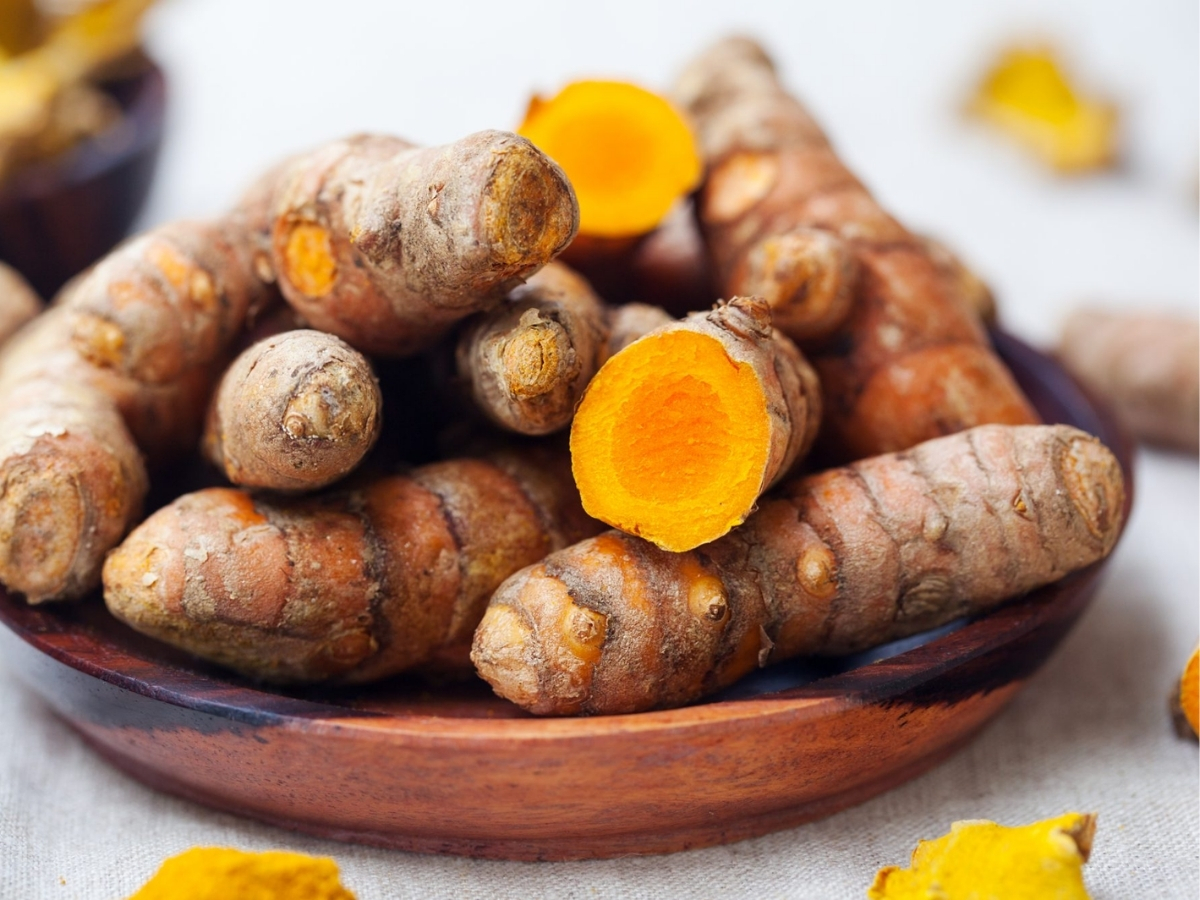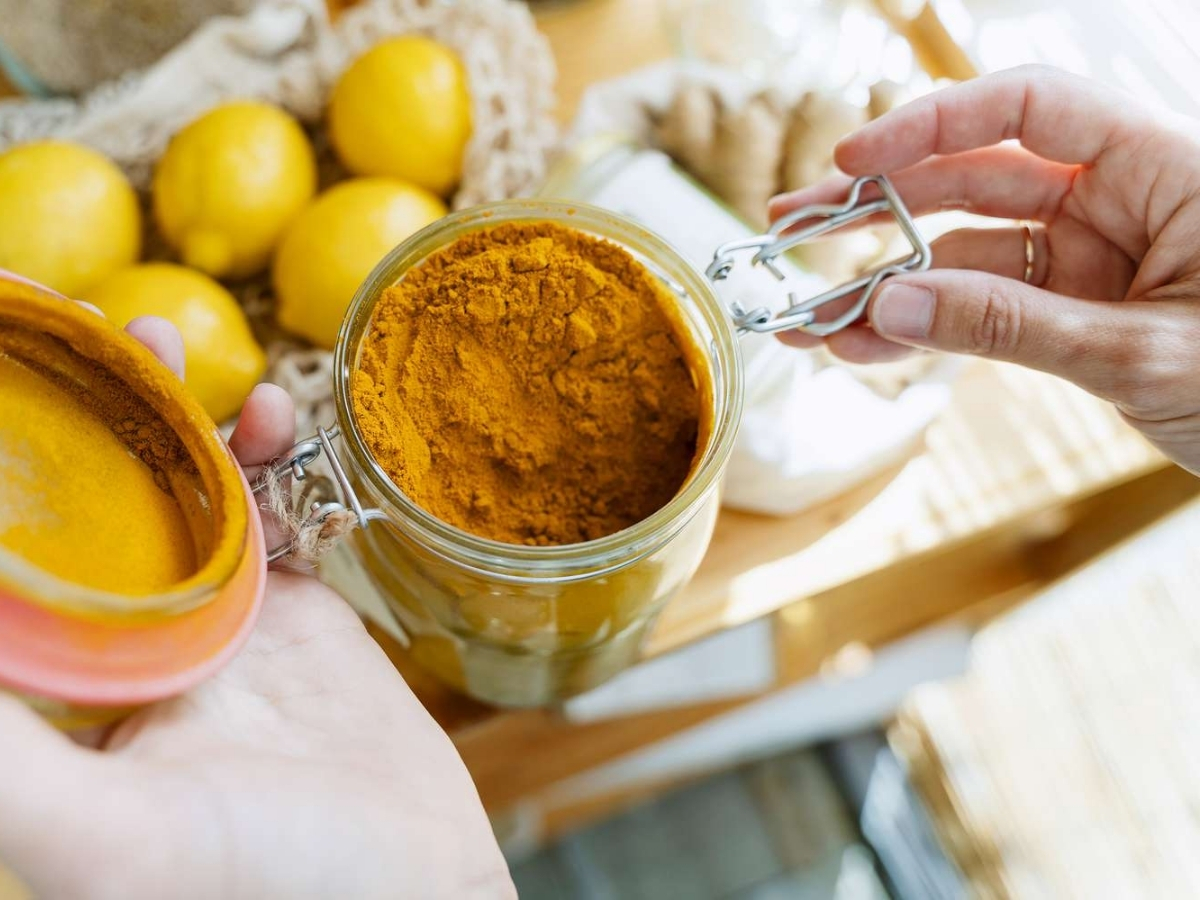Is turmeric good for diabetes? At Natural Health, we believe it’s a question worth exploring. More and more research highlights turmeric’s potential role in managing blood sugar and improving insulin sensitivity. Let’s dive into how this golden spice can fit into a diabetes-friendly lifestyle.
What is turmeric? Is turmeric good for diabetes?
Turmeric is a golden-yellow spice made from the root of the Curcuma longa plant, which is native to South and Southeast Asia.[1] It has been used for centuries in traditional medicine and cooking. So, is turmeric good for diabetes?
The answer is yes, turmeric may be beneficial for people with diabetes. Its active compound, curcumin, has anti-inflammatory and antioxidant properties. These effects may help improve insulin sensitivity, reduce blood sugar levels, and lower the risk of diabetes-related complications.[2]
Some studies suggest curcumin may also help reduce oxidative stress and inflammation, which are linked to type 2 diabetes.[3] However, most research is still in early stages, so it’s best to use turmeric as a supplement to, not a replacement for, medical treatment, always under the guidance of a healthcare professional.[4]

Read more: Are peanuts good for diabetes? Nutrition expert answers A-Z
The benefits of turmeric for diabetes
So, is turmeric good for diabetes? Evidence suggests it can be, as turmeric, especially its active compound curcumin, offers several potential benefits for blood sugar control and overall metabolic health:
- Improves Insulin Sensitivity: Curcumin may help the body respond better to insulin, which can support better blood sugar control.[5]
- Lowers Blood Sugar Levels: Some studies have shown that turmeric can help reduce fasting blood glucose and HbA1c levels.[6]
- Reduces Inflammation: Chronic inflammation is linked to insulin resistance. Turmeric’s anti-inflammatory properties may help reduce this risk.[7]
- Antioxidant Protection: Turmeric helps fight oxidative stress, which can damage cells and contribute to diabetes complications.[8]
Side effects of taking turmeric for diabetes
Is turmeric good for people with diabetes? Ofcourse, but it’s important to use it wisely. Though generally safe in moderate amounts, taking turmeric, especially in high doses or supplement form, can cause side effects such as:
- Digestive issues: Some people may experience nausea, bloating, or diarrhea.[4]
- Low blood sugar (hypoglycemia): When combined with diabetes medications, turmeric may enhance their effect and cause blood sugar to drop too low.[9]
- Increased risk of bleeding: Turmeric may slow blood clotting, so it should be used with caution if you’re taking blood thinners.[10]
How to take turmeric for diabetes

If you’re considering using turmeric to help manage diabetes, here are some common and safe ways to incorporate it:
- As a spice in food: Add ground turmeric to curries, soups, smoothies, or teas. This is the simplest and safest method for daily use.[11]
- With meals: Taking turmeric with food that contains healthy fats can enhance its bioavailability and reduce digestive side effects.[12]
“While turmeric may support blood sugar control, it should not replace diabetes medications. Always consult your healthcare provider before starting turmeric supplements, especially if you’re taking insulin or blood sugar–lowering drugs.”
Frequently asked questions
How much turmeric should a diabetic take daily?
Turmeric may offer benefits at doses ranging from 500 to 2,000 milligrams per day.[13]
However, the appropriate amount can vary depending on individual needs, so it’s important to consult a healthcare professional before using supplements.
Can diabetic patients drink turmeric milk at night?
Yes, diabetic patients can drink turmeric milk at night, as long as it’s unsweetened and made with a small amount of turmeric (about ¼–½ tsp). [14]
How quickly does turmeric lower blood sugar?
Turmeric is not a fast-acting remedy like insulin or diabetes medications. Its effects on blood sugar usually develop gradually over weeks of consistent use. Most studies show noticeable improvements in insulin sensitivity and blood sugar control after 8 to 12 weeks of taking curcumin supplements (around 500–1,000 mg/day).[15]
How much turmeric to lower blood sugar?
Studies suggest that 500 – 1,000 mg of curcumin extract per day may help lower blood sugar and improve insulin sensitivity. If using turmeric powder in food, about 1–3 grams per day (½–1 teaspoon) may offer mild benefits.[16]
Read more: Does Dragon Fruit Affect Blood Sugar?
Can diabetics drink turmeric water?
Yes, diabetics can drink turmeric water.[17] When consumed without added sugar, turmeric water may help support blood sugar control, reduce inflammation, and improve insulin sensitivity, thanks to its active compound, curcumin.
Do you know: Is green tea good for diabetes?
So, is turmeric good for diabetes? Turmeric is good for people with diabetes, it’s important to approach it with balance and proper understanding. Turmeric, particularly its curcumin content, may help improve insulin function, lower blood sugar, and reduce inflammation. However, it’s not a cure and should never replace treatments. At Natural Health, turmeric is often explored as a complementary option in diabetes care, especially when used under medical supervision to ensure safety and effectiveness.


Last medically reviewed on
How we reviewed this article:
References
[1] Chapter 13 Turmeric, the Golden Spice; Sahdeo Prasad and Bharat B. Aggarwal; 2011
[2] Curcumin Extract for Prevention of Type 2 Diabetes; Somlak Chuengsamarn, MDCorresponding Author; Suthee Rattanamongkolgul, MD; Rataya Luechapudiporn, PHD; Chada Phisalaphong, PHD; Siwanon Jirawatnotai, PHD; 2012
[3] ANTIOXIDANT AND ANTI-INFLAMMATORY PROPERTIES OF CURCUMIN; Venugopal P. Menon & Adluri Ram Sudheer; 2016
[4] Turmeric; National Center for Complementary and Integrative Health; 2025
[5] Anti-Hyperglycemic and Insulin Sensitizer Effects of Turmeric and Its Principle Constituent Curcumin; Zeinab Ghorbani, Azita Hekmatdoost, Parvin Mirmiran; 2014
[6] The effect of nano-curcumin on HbA1c, fasting blood glucose, and lipid profile in diabetic subjects: a randomized clinical trial; Hamid Reza Rahimi, Amir Hooshang Mohammadpour, Mostafa Dastani, Mahmoud Reza Jaafari, Khalil Abnous, Majid Ghayour Mobarhan, Reza Kazemi Oskuee; 2016
[7] Oral turmeric/curcumin effects on inflammatory markers in chronic inflammatory diseases: A systematic review and meta-analysis of randomized controlled trials; C. Michael White, Vinay Pasupuleti, Yuani M. Roma, Yangzhou Li, Adrian V. Hernandez; 2019
[8] Antioxidant and Antiinflammatory Activities of Curcumin on Diabetes Mellitus and its Complications; Bo Meng, Jun Li and Hong Cao; 2013
[9] Safely effective hypoglycemic action of stevia and turmeric extracts on diabetic Albino rats; Abdalla El-Hadary, Mahmoud Sitohy; 2020
[10] Turmeric; Memorial Sloan Kettering Cancer Center; 2024
[11] Turmeric Unveiled: Exploring the Golden Spice’s Health Benefits and Culinary Marvels; Tresno Saras, 2023
[12] Germinated brown rice regulates hepatic cholesterol metabolism and cardiovascular disease risk in hypercholesterolaemic rats; Mustapha Umar Imam, Aminu Ishaka, Der-Jiun Ooi, Nur Diyana Md Zamri, Nadarajan Sarega, Maznah Ismail, Norhaizan Mohd Esa; 2014
[13] Biological activities of curcuminoids, other biomolecules from turmeric and their derivatives – A review; Augustine Amalraj, Anitha Pius, Sreerag Gopi, Sreeraj Gopi; 2016
[14] Effect of Curcuma Longa (Turmeric) on Postprandial Glycemia in Healthy, Non-diabetic Adults; Oza, Namrata; 2017
[15] The therapeutic potential of curcumin: A review of clinical trials; Bahare Salehi, Zorica Stojanović-Radić, Jelena Matejić, Mehdi Sharifi-Rad, Nanjangud V. Anil Kumar, Natália Martins, Javad Sharifi-Rad; 2019
[16] Turmeric: A Herbal and Traditional Medicine; Debjit Bhowmik, Chiranjib, K. P. Sampath Kumar, Margret Chandira, B. Jayakar; 2009
[17] Production of suggested healthy drinks using turmeric as a functional food for diabetic and its effect on the bone health; Dr. Thnaa M. H. Gouda; 2023
Share this article
Read this next
Is water lemon good for diabetes? What should you know
Lemon water is good for diabetes, not just because it’s refreshing, but because it offers real support for blood sugar control. With zero added sugar, rich in vitamin C and antioxidants, it may help improve hydration, aid digestion, and reduce post-meal blood sugar spikes. At Natural Health, we break down how to make lemon water…
Apple cider vinegar for diabetes: The research says and tips to use
At Natural Health, we explore the growing interest in apple cider vinegar for diabetes. Studies suggest it may help improve insulin sensitivity and lower blood sugar levels after meals. This article explains how apple cider vinegar works, how to use it safely, and what people with diabetes need to know before adding it to their…
Is sweet corn good for diabetes? Dietitians explain
At Natural Health, we know many people managing blood sugar often ask, is sweet corn good for diabetes? The short answer: YES, with the right portion. Corn contains fiber, vitamins, and antioxidants that support overall health. In this guide, we break down how corn fits into a diabetes-friendly diet and how to enjoy it without…